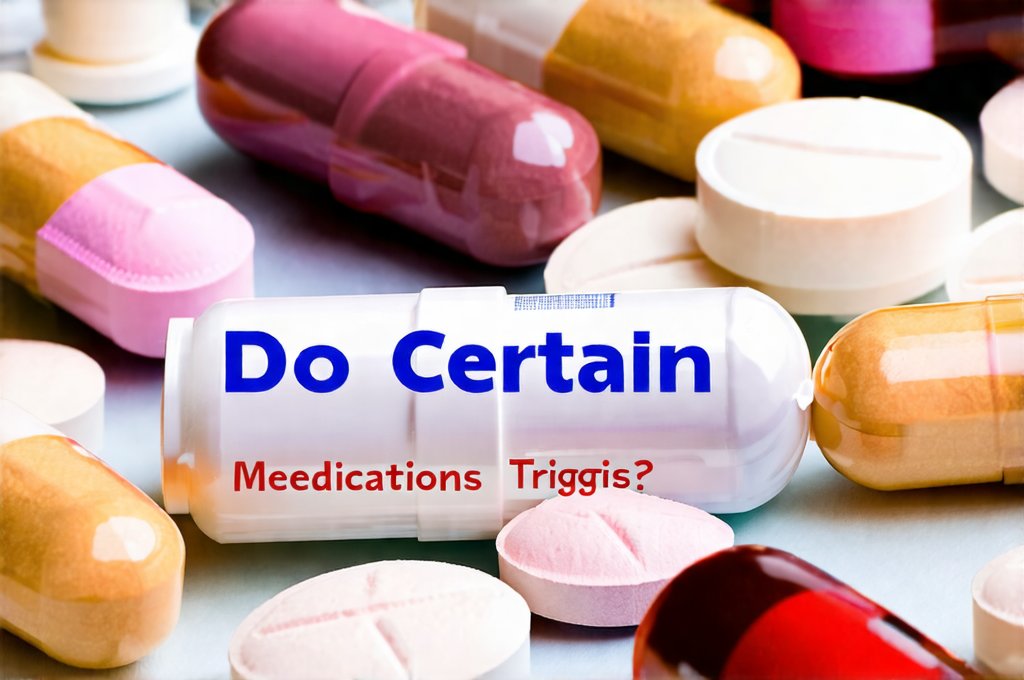Cystitis, commonly understood as a urinary tract infection (UTI) causing inflammation of the bladder, is an incredibly common ailment affecting people of all ages, though far more prevalent in women. While often associated with bacterial infections, the origins and triggers for cystitis can be surprisingly diverse, extending beyond simple hygiene or lifestyle factors. Many individuals experience recurrent bouts of cystitis, leading to frustration and a search for underlying causes – this is where the potential connection between certain medications and the development or exacerbation of cystitis symptoms comes into play. Understanding these connections isn’t about blaming medication but rather gaining awareness that some prescriptions or over-the-counter drugs might inadvertently contribute to bladder inflammation or compromise the body’s natural defenses against infection, increasing susceptibility to UTIs.
This complex relationship between medications and cystitis is often overlooked in standard medical discussions. It’s crucial to remember that correlation doesn’t equal causation; identifying a medication as potentially linked to cystitis doesn’t automatically mean it causes it. However, recognizing the potential for certain drugs to influence bladder health can empower individuals to discuss their concerns with healthcare professionals and explore alternative treatment options where appropriate. Furthermore, understanding these connections allows for more proactive preventative measures, such as optimizing hydration or adjusting medication schedules in consultation with a doctor. It’s about informed self-advocacy and collaborative care rather than fearmongering around necessary medications.
Medications Potentially Linked to Cystitis
Several categories of medications have been implicated in increasing the risk of cystitis or exacerbating symptoms in susceptible individuals. Diuretics, commonly prescribed for hypertension or edema, can sometimes contribute by altering bladder emptying patterns and potentially creating a more favorable environment for bacterial growth. Similarly, immunosuppressants – vital for managing autoimmune diseases or post-transplant rejection – can weaken the immune system’s ability to fight off infections, including UTIs. Perhaps surprisingly, even some commonly used medications like anticholinergics (used for overactive bladder or allergies) can play a role by reducing bladder tone and emptying efficiency. The mechanisms vary; some impact immune function, others affect bladder dynamics, and still others alter the vaginal microbiome which serves as a protective barrier against ascending infection.
The crucial factor isn’t necessarily the medication itself but the individual’s predisposition. For instance, someone with a history of recurrent UTIs might be more sensitive to the effects of diuretics on bladder emptying. Likewise, individuals already experiencing compromised immune function may find their susceptibility amplified by immunosuppressants. It’s important to note that these medications are often essential for managing serious health conditions; discontinuing them without medical guidance is never recommended. Instead, awareness and proactive monitoring, along with open communication with a healthcare provider, are key. This might involve adjusting dosages, exploring alternative therapies alongside medication, or implementing preventative strategies like increased fluid intake and cranberry supplements (though evidence regarding cranberry efficacy remains mixed).
Another important consideration is the impact of certain medications on gut health. Antibiotics, while crucial for treating bacterial infections, can disrupt the delicate balance of the gut microbiome, leading to dysbiosis – an imbalance in bacteria. This disruption can indirectly affect bladder health because a healthy gut microbiome plays a role in immune function and overall inflammation regulation. A compromised gut can leave individuals more vulnerable to infection and potentially worsen cystitis symptoms. Similarly, proton pump inhibitors (PPIs), used for acid reflux, have also been linked to alterations in the gut microbiome. Therefore, minimizing unnecessary antibiotic use and supporting gut health through diet and probiotics may be helpful strategies for reducing cystitis risk, especially when combined with medication that impacts these areas. Considering can certain diets trigger UTIs in women can also prove beneficial.
The Role of Steroids & Immunosuppressants
Steroids and immunosuppressants represent a particularly significant group due to their direct impact on the immune system. Corticosteroids, often used to manage inflammatory conditions, suppress the immune response, making it harder for the body to fight off infections. This can increase susceptibility to UTIs and cystitis, especially with prolonged use or high doses. Similarly, immunosuppressants – employed in organ transplantation and autoimmune disease management – achieve a similar effect, albeit through different mechanisms. Individuals on these medications are often advised to be extra vigilant about hygiene and prompt treatment of any UTI symptoms.
The challenge lies in balancing the need for immune suppression to manage underlying health conditions with the risk of increased infection rates. Regular monitoring by healthcare professionals is essential, along with adherence to preventative measures like adequate hydration and avoiding prolonged catheterization where possible. Some newer immunosuppressants may have a more targeted effect on the immune system, potentially minimizing some of these risks, but further research is ongoing. It’s also important to be aware that the interaction between steroids/immunosuppressants and cystitis can create a vicious cycle: infection weakens the immune system further, necessitating higher doses of medication which then further suppress immunity. Do certain medications trigger cystitis symptoms is an important question to ask your doctor.
Antibiotics & Microbiome Disruption
As previously mentioned, antibiotics are a double-edged sword. While they effectively combat bacterial infections causing acute cystitis, their broad-spectrum nature often disrupts the natural balance of bacteria in the gut and vaginal microbiome. This disruption can pave the way for opportunistic pathogens to flourish, increasing the risk of recurrent UTIs and antibiotic-resistant strains. The vaginal microbiome, specifically, is a critical defense against ascending urinary tract infections; when disrupted by antibiotics, it loses its protective barrier.
To mitigate these effects, healthcare providers are increasingly emphasizing the importance of judicious antibiotic use – prescribing them only when truly necessary and opting for narrower-spectrum antibiotics whenever possible. Probiotic supplementation during and after antibiotic courses may also help restore the gut microbiome, although the specific strains and dosages vary, and more research is needed to determine optimal protocols. Furthermore, preventative measures like maintaining adequate hydration and practicing good hygiene are crucial for minimizing the need for repeated antibiotic use.
Anticholinergics & Bladder Function
Anticholinergic medications, commonly prescribed for overactive bladder (OAB) or other conditions involving involuntary muscle contractions, can indirectly contribute to cystitis by affecting bladder emptying. These drugs reduce bladder tone and relaxation, leading to incomplete emptying – which creates a stagnant environment where bacteria can thrive. This is particularly problematic in individuals with pre-existing urinary issues or those prone to UTIs.
The key consideration here is balancing the benefits of anticholinergic medication for managing OAB symptoms against the potential risk of increased cystitis frequency. Healthcare providers may adjust dosages, explore alternative therapies (like pelvic floor exercises), or recommend strategies to promote complete bladder emptying – such as timed voiding and double-voiding (emptying the bladder fully, then waiting a few minutes before attempting to empty it again). It’s also important for patients taking anticholinergics to be aware of the early symptoms of cystitis and seek prompt medical attention if they develop. Do UTIs trigger dizziness or headaches in women can sometimes accompany these symptoms, making diagnosis more complex.
It’s vital to reiterate that this information is not intended as medical advice. If you suspect your medication might be contributing to cystitis, or are experiencing recurrent UTI symptoms, please consult with a healthcare professional for personalized evaluation and guidance. Self-treating can be dangerous, and accurate diagnosis and tailored treatment plans are essential for optimal health outcomes.





















